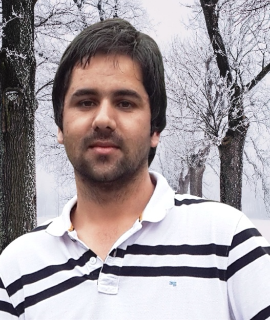Title : Using cutting-edge computational genomic methods to deconstruct major pathogenic fungi: a case study of Monilinia
Abstract:
Several in silico technologies will be described throughout the talk in order to bring fresh genetic insights into fungal diseases. The lecture will highlight how computer algorithms may assist us in assessing the completeness of genome assemblies, generating repeat libraries, and discovering new genes from drafted genomes. The presentation will demonstrate the in silico examination of the secretome, which consists of genes that encode effector proteins and aid fungus in invading their hosts. Secondary metabolites (SMs) are compounds produced by fungi that help in adaption and reproduction in a variety of settings, as well as in competition with other microbes. The potential in silico strategy for identifying these SMs will be discussed. The lecture will explain how to identify pathogenicity genes that are experiencing positive selection and implicated in the local adaptation of host genotypes or environmental pressures in fungal infections. The talk will also reveal a viable method for investigating the impact of evolution on the secretome architecture of pathogenic fungus. A possible approach for investigating the effect of evolution on the secretome architecture of pathogenic fungus in order to determine if there is secretome expansion or contraction will also be discussed. The discovery of pathways that are overrepresented during pathogen-host interactions and help in the successful colonisation of fungi will also be addressed. The session will cover functional annotation methodologies that can aid in the identification of a large catalogue of genes involved in cellulolysis, pectinolysis, and proteolysis in annotated genomes. The presentation will also address RNA-Seq analysis to better understand the expression of numerous virulence-promoting genes. The applicability of in silico techniques to understanding the mechanism of fungal disease will be examined using the pathogenic fungus Monilinia as an example.
What will audience learn from your presentation
The widespread use of next-generation sequencing holds immense promise for improving our understanding of microbial etiology. The comparative and functional genomic techniques provide an integrated future for microbiology that blends the capabilities of classical microbiology with the promise of emerging sequencing technology. The approaches discussed in the presentation will let the audience conduct genome-wide structural, functional, and transcriptomic analysis to add depth and context to the mechanism of microbial pathogenesis. Understanding which genes are expressed in microbes and when, as well as the backdrop of putative pathways and evolutionary biology, can provide insights into how they function. More importantly, all of the computational tools utilised for the investigation are open source and hence accessible to any researcher. The methods outlined in the presentation will be a realistic option for any microbiologist to address the genomic aspects of fungal pathology.


